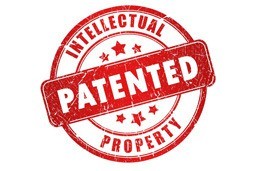The headlines coming out of the Coronavirus Aid, Relief, and Economic Security (CARES) Act becoming law have, in large part, been reserved for the financial relief, loans, and grants it provides for businesses and individuals nationwide. Lesser known, or reported, is the legislation’s impact on the intellectual property world. Yet to owners or would-be owners of IP, that aspect of the CARES Act is a big deal.
Pursuant to the legislation, the U.S. Patent and Trademark Office is allowed to “toll, waive, adjust, or modify” timing deadlines under the trademark and patent statutes. And the USPTO has done just that, extending the time to file certain trademark- and patent-related documents and fees in the wake of the COVID-19 crisis.
Because the outbreak may prejudice the rights of trademark and patent applicants, registrants, and owners, the USPTO has exercised its authority under the CARES ACT and granted a 30-day extension for certain deadlines falling between March 27 and April 30, 2020 to those unable to meet these deadlines by virtue of the pandemic.
Michelman & Robinson answers questions you may have about the details of the USPTO’s extension of deadlines.
Q. Is any given deadline extension under the CARES Act automatic?
A. No, to avail yourself of an extension, you as an applicant or registrant (or a practitioner acting on your behalf) must include a statement with your particular filing or payment explaining that the delay was due to the coronavirus. The circumstances that can form the basis of your statement are rather broad and may include, closure of your business, the inability to access files or other materials, cash flow interruptions, personal or family illnesses, and travel delays.
Q. What exactly does the deadline extension apply to?
A. In terms of trademarks, the 30-day extension triggered by the CARES Act applies to many of the filings that are a part of a trademark’s application or registration maintenance phase. These include:
- Responses to office actions or final office actions
- Statements of Use or extensions of time to file a Statement of Use
- Notices of Opposition or extensions of time to file a Notice of Opposition
- Priority filing basis
- Transforming an extension of protection to the U.S. into a U.S. application (for foreign registrations)
- Section 8 Use or Excusable Nonuse filings for maintenance
- Section 9 Registration Renewals
Patent filings that can be extended are as follows:
- Replies to an office notice issued during pre-examination processing by small or micro entities
- Replies to an office action or notice issued during examination or publication processing
- Issue fees
- Notices of appeal
- Appeal briefs
- Reply briefs
- Appeal forwarding fees
- Requests for an oral hearing before the Patent Trial and Appeal Board (PTAB)
- Responses to substitute examiner’s answer
- Amendments when reopening prosecution in response to, or request for rehearing of, a PTAB decision with a new ground of rejection
- Maintenance fees filed by small or micro entities
- Requests for rehearing of a PTAB decision
Bottom line: if an eligible document (as listed above) or fee was or is due between (and inclusive of) March 27 and April 30, 2020, the filing will be considered timely if made within 30 days of the original due date, provided (again) that the filing is accompanied by a statement that the delay in filing or payment was due to the COVID-19 outbreak. Nevertheless, while the extensions offered by the USPTO are available if you have been adversely impacted by the coronavirus, the relief is limited to those circumstances delineated by the UPSTO. If your situation does not fall within those identified by the USPTO, your original deadlines are in force. To that end, the USPTO and its electronic filing system remain open.
Q. Are copyright-related timing requirements extended too?
A. It must first be understood that the U.S. Copyright Office is separate from the USPTO. That being said, the Copyright Office has also extended certain deadlines for those affected by the coronavirus pandemic. While there has not been any adjustment to the timing requirements of copyright applications that can be filed online, the physical deposit of a copyrighted work and any physical application (for those that cannot be filed online) can be delayed up to 30 days after the disruption from COVID-19 has ended (this assumes that the applicant files a statement that physical copies could not be mailed on time).
Note that if a copyright applicant is delayed in submitting an application, either electronically because of an inability to access the Internet or by virtue of an inability to submit required physical materials, the Copyright Office will annotate the resulting copyright registration accordingly, which will be critical to applicants who need to enforce their copyrights through infringement actions.
Q. Might there be additional IP-related deadline extensions under the CARES Act?
A. Perhaps, the CARES Act states that the USPTO has the authority to extend or modify deadlines for the duration of the national emergency declaration (invoked on March 13, 2020) and for the 60 days following the expiration of that emergency.
We will continue to monitor the USPTO and Copyright Office for coronavirus-related announcements and updates that may impact our clients.
This blog post is not offered, and should not be relied on, as legal advice. You should consult an attorney for advice in specific situations.

